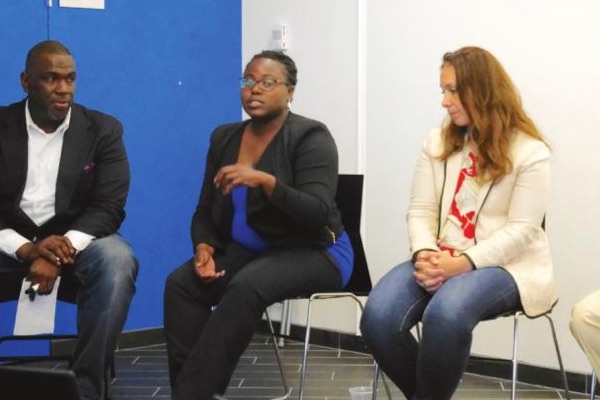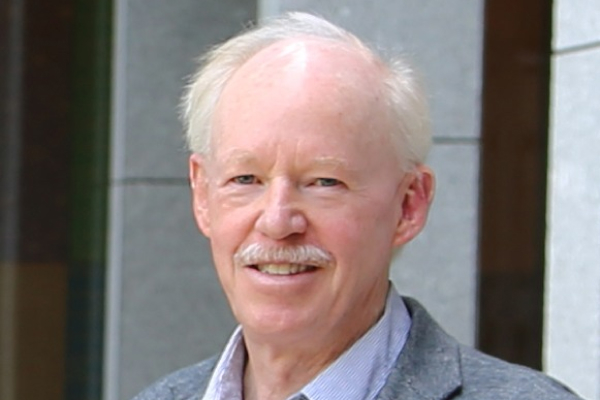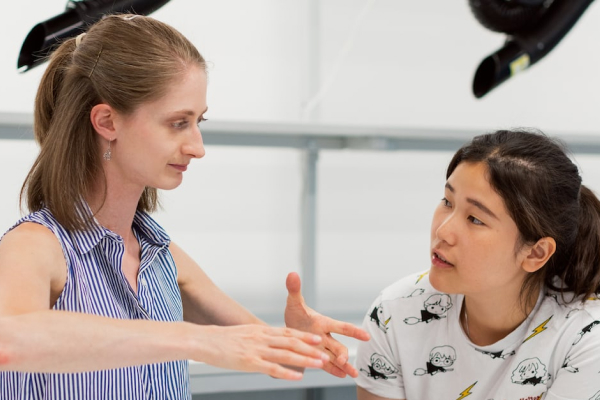ENTREPRENEURSHIP CERTIFICATE
The certificate program in entrepreneurship provides curricular structure for undergraduate students who wish to make entrepreneurship an important part of their intellectual journey at Brown. Offered in conjunction with the School of Engineering, it builds upon Brown’s interdisciplinary approach to liberal arts education and commitment to the exploratory spirit of the open curriculum.
Students pursuing the entrepreneurship certificate take a five-course sequence comprising two foundational courses, two elective courses, and an experiential course in which they develop and advance an entrepreneurial project of their own design. Students can declare a Certificate in ASK during their fifth and sixth semesters. More information about Certificates and Brown and related guidelines and deadlines can be found here.
PROGRAM OVERVIEW
We teach entrepreneurship as a structured process for problem-solving through which students gain tools to identify challenges, create solutions with impact, and scale sustainable solutions. These tools empower individuals to address some of the world’s most urgent and complex challenges. Recognizing entrepreneurship as an approach to problem-solving is a central tenet of our approach. As students develop this understanding and proficiency in the process, they will uncover entrepreneurship’s applicability to diverse contexts.
ELIGIBILITY
Students in their fifth or sixth semester with an approved Concentration may declare their intention to pursue a certificate in entrepreneurship in ASK. Students should be in the process of taking or have already taken at least two courses that fulfill the Entrepreneurship Certificate. Students may pursue one Concentration and one Certificate.
COURSES
To earn the certificate in entrepreneurship, a student must complete a five course sequence designed to introduce foundational entrepreneurial concepts, extend those concepts into specific areas of student interest, and put those concepts into action through an experiential practicum where they develop real-world entrepreneurial projects of their own design.
- Two Core Courses (ENGN 0090 and ENGN 1010)
- Two Elective Courses
- One Practicum Experiential Course (ENGN 1931T)
Below is more detailed description of each of these courses as well as the list of elective options currently available for certificate candidates.
ADVISING
We would be happy to answer questions you may have about the certificate. Please visit our FAQ below, but if you need additional help or have further questions, we are here to help. For specific questions or to get an override code to declare a Certificate, please contact Sheila_Haggerty@brown.edu.
FOUNDATIONAL COURSES

ENGN 0090: Management of Industrial and Nonprofit Organizations
Thano Chaltas / Barrett Hazeltine
Exposes students to the concepts and techniques of management. Topics include marketing, strategy, finance, operations, organizational structure, and human relations. Guest lecturers describe aspects of actual organizations. Lectures and discussions.
(Fall Only)

ENGN 1010: The Entrepreneurial Process
Danny Warshay / Jason Harry / Fran Slutsky / Jon Cohen
Entrepreneurship is innovation in practice: transforming ideas into opportunities, and, through a deliberate process, opportunities into commercial realities. These entrepreneurial activities can take place in two contexts: the creation of new organizations; and within existing organizations. This course will present an entrepreneurial framework for these entrepreneurial processes, supported by case studies that illustrate essential elements. Successful entrepreneurs and expert practitioners will be introduced who will highlight practical approaches to entrepreneurial success.
(Fall/Spring)
ELECTIVE COURSES

BIOL 2089: The Importance of Intellectual Property in Biotechnology
Jeff Morgan / Dan Holmander
This course delves into the various roles of intellectual property in biotechnology. In addition to providing a solid foundation in the fundamentals of intellectual property, the course will use case studies in biotechnology to explore in depth the interplay between specific scientific breakthroughs and intellectual property. An understanding of the science of biotechnology is critical for advanced understanding of the value and possibilities of biotechnology intellectual property.
(Fall only)

CLPS 0220: Making Decisions
Steve Sloman or David Levari
This course is an introduction to the field of judgment and decision-making, an interdisciplinary area that has emerged from the natural confluence of academic and applied interests across several disciplines, including cognitive science, economics, computer science, psychology, statistics, business, medicine, law, and philosophy. The field deals with questions of how people judge likelihood, value, and risk and how those judgments influence their decisions and actions. The intent is to introduce some of the key formal concepts that have shaped the field, including probability and utility theory and discuss them in light of how people actually do and should make judgments and choices. We will evaluate whether human behavior coheres with the qualitative prescriptions of the normative theories discussed and draw out implications for practical decision making such as consumer choice.

CLPS 1255: Improving Human Performance
David Levari
In high-stakes environments such as startups, classrooms, or sports fields, success often comes down to who performed the best. But what factors contribute to how well we perform, and what does science tell us about how to improve? This course will examine the social and cognitive mechanisms underlying human performance, alone and in teams. We will survey domains such as entrepreneurship, sports, artistic works, and mathematics to understand topics including how practice can increase expertise, the motor and psychological components of mental and physical performance, performing under pressure, assembling effective teams, working optimally with AI tools, and how to sustain performance over time. This course is ideally suited for advanced undergraduates or graduate students.

ECON 1490: Designing Internet Marketplaces
Bobby Pakzad-Hurson
How has the digital economy changed market interactions? The goal of this course is to help you think critically, using economic theory, about the future of the digital economy. What are important economic activities now being conducted digitally? How has digital implementation of these activities changed economists’ classical views and assumptions? What are ways in which we can use economics to engineer “better” digital markets? We will focus on several real-world markets (eg. eBay, Airbnb, Google advertising, Uber, Tinder, TaskRabbit) and topics (eg. market entry, pricing, search, auctions, matching, reputation, peer-to-peer platform design).
(Fall/Spring)

ECON 1730: Venture Capital, Private Equity, and Entrepreneurship
Rafael La Porta
This course will use a combination of lectures and case discussions to prepare students to make decisions, both as entrepreneurs and venture capitalists, regarding the financing of rapidly growing firms. The course will focus on the following five areas:
1. Business valuation
2. Financing
3. Venture Capital Industry
4. Employment
5. Exit
(Fall only)

ENGN 0020: Transforming Society-Technology and Choices for the Future
Jason Harry
This course will address the impact that technology has on society, the central role of technology on many political issues, and the need for all educated individuals to understand basic technology and reach an informed opinion on a particular topic of national or international interest. The course will begin with a brief history of technology.
(Spring only)

ENGN 0610: Systems Thinking
Rich Morales
Systems Thinking links theory and practice to better understand and improve the world around us. It examines the nature of systems in nature, society, and engineering, and applies interdisciplinary lenses to explore important global challenges like those tied to climate change, energy, health, and supply chains. This holistic approach provides both a strategic and practical means to visualize, analyze, and design solutions to improve performance. Students will engage in activities to discover how complex patterns of behavior can arise from simple structures and simple rules and draw on these insights to develop a deeper understanding of how people, process, and purpose align to get things done. In sum, this course helps students see systems in a whole new light, develop mental toolkits for analyzing tough issues, model their structure and behavior, and understand how and why change happens.

ENGN 0900: Managerial Decision Making
Thano Chaltas / Barrett Hazeltine
Ways of making effective decisions in managerial situations, especially situations with a significant technological component; decision analysis; time value of money; competitive situations; forecasting; planning and scheduling; manufacturing strategy; corporate culture.
(Spring only)

ENGN 0930L / ENGN 1931L: Biomedical Engineering Design and Innovation
Anubhav Tripathi
This course is the culmination “capstone” of the biomedical engineering educational experience. The primary objective of this course is to recall and enhance design principles introduced through the engineering core curriculum and to apply this systematic set of engineering design skills to biomedical engineering projects. Students will form teams with their peers and a clinical advisor, identify and define a design project to meet a clinical need, and engage in the design process through the course of the semester. For seniors only. Non-engineering concentrators should register for ENGN 0930L.

ENGN 1820 : The Future of Work (formerly SOC 1220)
Banu Ozkazanc-Pan
Technological advances in brain science, big data, AI, VR, AR, mixed reality, blockchain, machine and deep learning have the potential to substantially change our work experiences, organizations and society. Collectively, these trends are referred to as the Future of Work. These changes can bring many positive benefits, such as new work options in the gig economy or new opportunities for start-ups. At the same time, such advances can raise ethical concerns and questions when technology is used to predict human behavior, replace employees, create a contingent and low-wage workforce, or drive autonomous vehicles among many other examples. Using a combination of case studies, projects, academic articles and current media materials, this class will examine three issues related to these new trends: how the world of work is changing, why these changes are important in relation to organizationsand entrepreneurship, and what skills are necessary to shape the future of work in ways that are sustainable, ethical and inclusive.
(Spring only)

ENGN 1931Q: Entrepreneurial Management in Adversity
Howard Anderson
“Sweet are the uses of Adversity,” said William Shakespeare. But then again, Shakespeare never had his ventures explode on him. Companies get into trouble all the time – they make the wrong products for the market, their sales fail to meet quota, their factories go on strike. But this course is not about the day-to-day problems that companies run into. It examines what action items a venture must do when its very existence is at stake. This is the situation where time is the critical element – there isn’t enough time to hire consultants, do research, hire new employees – it is when Top Management must make decisions often with insufficient data and a series of alternative options – all of which seem ‘sub-optimal.’ But one must be chosen.
(Spring only)

ENGN 1931W: Selling & Sales Leadership in the Entrepreneurial Environment
Howard Anderson
Nothing happens until a sale is made. That simple point underlines the critical importance of sales. Almost every business plan “assumes” a certain amount of sales but that assumption is the tipping point. Without sales the entire business model is an exercise in frustration. The CEO, CFO and the General Manager must not only understand the sales process but also embrace the fact that the ability to sell is the single most critical success factor of any enterprise, whether new or ongoing.

ENGN 1931N: Building Entrepreneurial Ecosystems for Economic Inclusion
Banu Ozkazanc-Pan
Entrepreneurial ecosystems represent one of the most recent developments for fostering economic development as leaders globally aspire to build successful ecosystems in their cities and regions. . This class will examine the emergence of entrepreneurial ecosystems in different cities and the various roles, functions and goals of entrepreneur support organizations (ESOs) in these contexts. These organizations support the development of social and cultural capital in entrepreneurs and act as intermediaries in connecting them with the existing resources of an ecosystem. At the same time, ESOs may engage in gatekeeping behavior that replicates or even furthers inequalities in access to resources for certain groups of entrepreneurs, such as women and minorities. The class will focus on different organizational practices and policies for building inclusive entrepreneurial ecosystems. Students will have the opportunity to visit local ESOs during the course to enhance their learning of ecosystems, ESOs and inclusive economic development. (Spring only).

ENGN 1932D: Qualitative Market Research for Entrepreneurs & Business Innovators
Angus Kingon
A critical element of entrepreneurship, and indeed all new business development, is to be able to undertake insightful market research, including developing an ‘understanding’ of the customers of potential new products and services. This requires qualitative research methods, and in this course participants learn to utilize the most recent and effective methods. A feature of the course is that the curriculum also explores the academic origins of the methods, developed from the fields of sociology, anthropology, management, and industrial design. Participants undertake a meaningful market research project in teams or as individuals.

ENGN 2125: Engineering Management and Decision Making
Jason B Harry, Mark Norige & Rich Morales
The primary objective of the course is to train students on tools, skills, and behaviors required for effective management of complex engineering, research, and business development projects. Although the course will be framed in the context of early-stage technology companies, the skills and principles will be applicable to businesses of any size and maturity. The course is organized around three actionable themes: project management, team management, and decision making.

ENGN1932R: Leadership of Organizations (formerly SOC 1060)
Banu Özkazanç-Pan
What is leadership? What makes a great leader? Can leadership be learned? Improved? This course explores various theoretical approaches to leadership using a combination of lectures and case-study analysis. Additionally, it aims at developing your personal leadership skills by using self-exploration and reflection, self-assessment instruments, role-play, and feedback from peers.

ENVS 1207: Eco-Entrepreneurship (formerly UNIV 1207)
Alice Nichols
Environmental, business, and social opportunities are often seen as being at odds. This course is a hands-on, interactive journey to explore bringing an impactful idea for an environmental product/service/solution into the world and designing a business plan to do so. You will identify an environmental area of opportunity, learn how to focus on the problem before the solution, identify the key stakeholders including your users/customers, and build a business model. You will look at the triple bottom line, and learn new tools, best practices, and frameworks to breathe life into your solution and make it viable.

GNSS 1101: A Gender Perspective on Women and Enterprise
Linda Scott
A distinctive pattern of economic inequality marks the female population of every nation, each with the same mechanisms standing behind the disadvantages. Everywhere, the barriers to women’s economic engagement reach beyond work and salary to encompass property ownership, capital, credit, and markets. When considered as a whole, these barriers constitute economic exclusion, not just economic inequality. To date, policy, scholarship, and activism on the economic status of women have tended to focus on inequality in the formal workplace, but the full pattern is much more visible when women-owned businesses are examined.

IAPA 1201D: Social Entrepreneurship
Bill Allen
This course introduces students to social innovation and social entrepreneurship and engages them in identifying significant issues, problems, tools, strategies and models that drive bold solutions to complex contemporary problems. Enrollment limit is 40.
(Fall only)

SOC 1118: Context Research for Innovation
Lisa DiCarlo
This course brings design thinking into conversation with qualitative research methods, examining the elements of a comprehensive perspective of context. It introduces students to design research methods, ethnographic research methods, and how they work together. Students will learn how to use these methods to identify and engage in “deep hanging out” with the problem, gap or inefficiency in question. They will then move on to patient contextualized opportunity identification for meaningful innovation. By the end of the course, students will have developed a process for effective, through innovation context analysis. Relevant for designers of products, services, organizations , and experience.

SOC 1260: Market Research in Public and Private Sectors
Carrie Spearin
Introduction to data and research methods for private and public sector organizations. Data used in market research include trends in the population of consumers, economic trends, trends within sectors and industries, analyses of product sales and services, and specific studies of products, promotional efforts, and consumer reactions. Emphasizes the use of demographic, GIS, and other available data.
(Fall only)

URBN 1943: The Real Estate Development Process: An Entrepreneurial Lens
Jon Cohen
Real estate development is the ongoing configuration of the built environment for society’s needs. The improved spaces in which we live, work, and play all started as ideas initiated and brought to fruition. Every real estate project, whether it’s making use of unused land or redeveloping existing properties, is in essence a separate business undertaking employing the three factors of production – land, labor, and capital – to create a new or changed product. These factors are coordinated by entrepreneurial management and delivered by teams.
PRACTICUM

ENGN 1931T: Entrepreneurship Practicum: Starting, Running, and Scaling Ventures
Jessica Kim / Abbie Kohler
The Entrepreneurship Practicum is an experiential, project-based course designed to help entrepreneurs turn their ideas into real ventures that can achieve “impact at scale.” This course is designed to help student venture teams to work in a structured way. It provides supportive mentorship and content so that students make significant progress on their venture and learn to go from idea to action. The course can now be found in CAB, but if you have any questions about it, please contact Sheila Haggerty(sheila_haggerty@brown.edu).
FAQ
Do I need to take the certificate classes in a specific order? What if I have taken two classes that count as electives but not the two foundational courses?
Technically yes you can pursue it, but we would strongly advise students to start with the foundational courses first. Learning the fundamentals will enable you to get more out of your elective courses and better equip you identify worthwhile entrepreneurial projects.
Do I need to have a specific idea to take the practicum? What if I don’t have a specific project in mind?
Yes you should have a specific project in mind in order to take the Entrepreneurship Practicum (ENGN 1931T). In fact, the practicum is an application-only course, and that application centers on the student’s proposed venture project. While early stage ventures often change and evolve, at minimum students applying to the practicum should have a clearly identified problem space as well as a proposed solution to that problem (and better yet a possible way to test that solution). In short, the practicum is a serious undertaking and most students spend huge quantities of time on their projects. If you have completed all of the other certificate requirements but don’t have a project in mind, we recommend waiting to take the practicum until you do.
Is the certificate primarily designed to support for-profit entrepreneurship? What if I am interested in social entrepreneurship, for example?
The certificate – and the Nelson Center in general – is designed to support entrepreneurship as problem solving. That’s the way we teach entrepreneurship, as a structured process for identifying problems and developing scalable solutions to those problems. We don’t define entrepreneurship by a particular industry or sector. Our entrepreneurs put this process to work on a dazzlingly diverse set of issues and problem spaces, and we wouldn’t have it any other way.